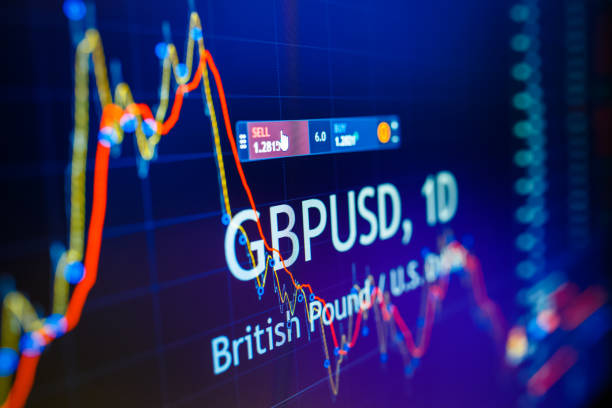The GBPUSD has lost strength as a result of the upbeat market atmosphere. The Bank of England (BoE) is making some significant initiatives to improve financial conditions. But the GBPUSD pair is still exhibiting unpredictable movements. Because of anticipated worsening labor shortages. Inflation in the United Kingdom is poised to accelerate once more.
Investors are turning their attention to the Services. PMI following a slight uptick in the Manufacturing PMI for the United Kingdom. Unlike the industrial sector in the UK. Which has been showing contractions, the service industry is currently seeing growth. During the last 11 months, nonstop. In the meanwhile, UK Prime Minister Rishi Sunk is optimistic about achieving pricing stability.
GBPUSD looks to go below 1.2700, according to the daily market movers
Rishi Sunak, the prime minister of the United Kingdom, has pledged to make full use of monetary. And fiscal policies to combat chronic inflation.
UK Sunak stated that inflationary pressures are persisting longer than anticipated. But this does not imply that the current policy measures are ineffective.
The British government has declared its intention to contribute 11.6 billion pounds to global climate funding.
Businesses are increasing their investments in Germany to make up for the lengthy paperwork. And delays at the border brought on by Britain’s withdrawal from the EU.
According to Financial Times, the Bank of England is preparing to discuss subsidiary formation with foreign banks.
The UK economy is under higher inflationary pressures due to labor shortages and food price inflation that is at a 45-year high.
As almost one in three female workers are anticipated to contemplate early retirement due to health difficulties, labor shortages are predicted to worsen.
According to Reuters, UK Finance Minister Jeremy Hunt endorsed the Financial Conduct Authority’s (FCA) efforts to ensure banks are providing customers with higher savings rates.
Investors are paying close attention to the June Services PMI data, which is predicted to remain stable at 53.7.
Consumer inflation estimates for the next year have grown, according to the monthly survey conducted by Citi Bank and the research firm YouGov, to 5.0% in June Markets believe that the BoE will ultimately increase interest rates from their present level of 5% to 6.25%.
Ahead of the US markets’ return after a holiday, the risk profile has become more cautious.
Investor confidence that the Federal Reserve (Fed) would only increase interest rates once this year, despite Fed chair Jerome Powell believing two modest rate rises reasonable, has caused a steep decline in the US Dollar Index (DXY).
Investors will pay close attention to the Federal Open Market Committee (FOMC) minutes, the ISM Services PMI, and the employment statistics later this week.
Technical Outlook
As the US Dollar Index is under pressure ahead of the FOMC Minutes, the pound has surpassed Tuesday’s closing at 1.2710 to extend its three-day winning streak. The At 1.2667, the 20-period daily exponential moving average (DEMA) has been sustained above cable, demonstrating a positive short-term trend.
Momentum oscillators are trying to move in a positive direction, which would strengthen the bulls of the pound sterling.
If Cable is able to decisively go over 1.2740, buyers could increase their holdings. If it corrects below the psychological support level of 1.2500, the bullish bias could disappear.









